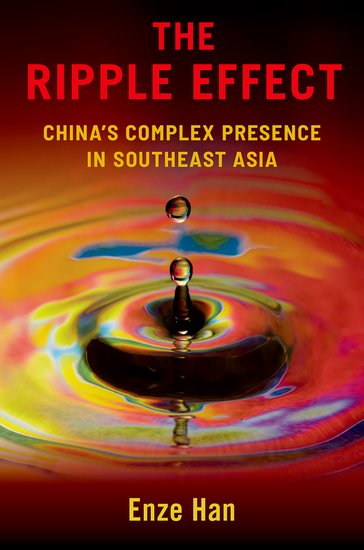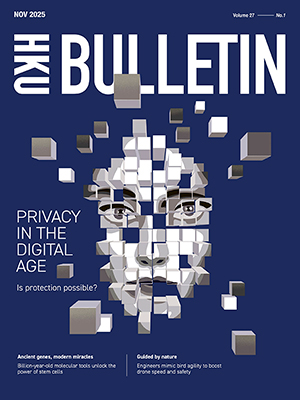May 2025 | Volume 26 No. 2
Chinese Impacts in Southeast Asia
Listen to this article:
China’s economic rise this century has coincided with its people venturing out to spend their money or find new economic opportunities, often to positive effect but sometimes with less favourable outcomes. Take, for instance, Manila. Chinese-owned casino firms operating there have snapped up real estate for investment or to house their workers coming over from China. This has priced out local industries and forced many ordinary Filipinos to move out of the city centre.
Or take the example of durian farming in Thailand. The fruit is in such high demand in China that many farmers have converted their land to the crop, rather than grow local produce in demand. Durian has also become very expensive for local Thai consumers.
These effects – not to mention the impact of Chinese criminal gangs and tourists – are documented in a book by Professor Han Enze of the Department of Politics and Public Administration called The Ripple Effect: China’s Complex Presence in Southeast Asia. He uses media analyses, surveys and other information to assess perceptions of China in Southeast Asia.
“Conventional literature on China’s influence or relations with Southeast Asia has overwhelmingly focussed on the actions of the state, while ignoring lots of things happening at the societal level,” he said. Yet the bad behaviour of a few Chinese citizens could in fact affect the state’s efforts to promote China’s image and culture abroad.
Centres at the border
One of the most problematic examples is scamming. In Myanmar, along the Thai border, Chinese entities have set up scamming centres targeted at Chinese people. They need fluent Chinese speakers to do this work, so they lure people from Mainland China, Hong Kong or Taiwan on false pretences, then force them to work through threats and abuse. Thousands have been tricked this way. Bad publicity in the wake of the snaring of Chinese actor Wang Xing and of Hong Kong citizens has led to a recent crackdown in Myanmar, but the news also adds fuel to anti-China sentiments.
“Thai media now focusses a lot on Chinese criminals working at the border. This will affect how ordinary people perceive China because they often associate those Chinese criminals with China in general,” Professor Han said.
Migrants, in the broadest sense, also have an impact on perceptions of China. Professor Han includes tourists in this group, as ‘short-term migrants’. While tourism income is welcome, host countries such as Thailand have seen operators from China set up shop to provide Chinese-language tours and other support, diminishing local economic benefits. Poor behaviour by tourists, such as speaking loudly and not respecting rules for photography, is also a concern.
“Perhaps like the ‘ugly Americans’ travelling in Europe during the post-World War II years, Chinese tourists have faced similar pejoratives in Southeast Asia because of the way they flaunt newly gained wealth, while having a strong sense of entitlement and lack of respect for local customs,” he said. The Chinese government has taken note, publishing a guide on being civilised while abroad and setting up a blacklist of tourists who publicly misbehave.
Complex influence
The region cannot turn its back on the giant of China, though, given its huge economy and population and its geographic dominance. But Professor Han believes the government’s own actions in areas such as the South China Sea may not be as impactful as the body of literature about it suggests.
“My argument essentially is that public perceptions of China in Southeast Asia, while they may be affected by state actions, are probably more likely affected by those non-state actors,” he said. “Ordinary people will not understand what authoritarianism means in their daily lives, but they will encounter investors who come to buy their land and push up property prices, or tourists who swarm into the area.”
The impact can vary from country to country. For instance, Chinese living in Indonesia, who have been targeted in periodic violent anti-Chinese riots, are careful to avoid perceptions of collusion with China or disloyalty to Indonesia. During the COVID-19 pandemic, they were very generous in donating to charities to help local people.
But overall, the picture is of a giant that looms over its neighbours, politically, economically and culturally, similar to the United States over Canada and Mexico.
“I want to show the complexity of this influence. It cannot be easily simplified to say that everything is directed by the state. There is a ripple effect and people need to get used to it. The rise of China will have lots of ripples and Southeast Asia is at the frontline,” Professor Han said.

The Ripple Effect: China’s Complex Presence in Southeast Asia
Author: Enze Han
Publisher: Oxford University Press
Year of Publication: 2024
My argument essentially is that public perceptions of China in Southeast Asia, while they may be affected by state actions, are probably more likely affected by those non-state actors.

Professor Han Enze

